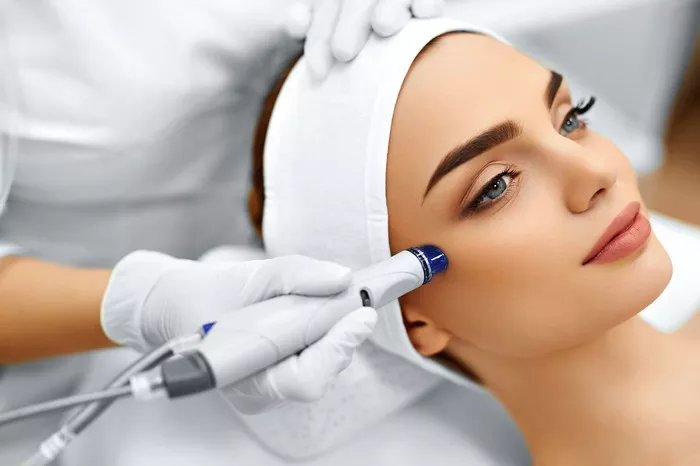Microdermabrasion is a popular cosmetic procedure that helps rejuvenate the skin by exfoliating the outermost layer and stimulating collagen production. Before undergoing microdermabrasion, it is essential to prepare your skin properly to ensure optimal results and minimize the risk of complications. In this article, we will provide a comprehensive guide on what not to do before microdermabrasion to help you achieve the best possible outcome.
Why Preparing Your Skin is Important
Properly preparing your skin before microdermabrasion is crucial for several reasons:
- Enhanced Results: Preparing your skin allows the treatment to be more effective. Removing any barriers, such as dead skin cells or excess oil, ensures that the microdermabrasion procedure can reach deeper layers and provide optimal exfoliation.
- Reduced Risk of Complications: Preparing your skin helps minimize the risk of complications, such as irritation, redness, or post-treatment breakouts. By avoiding certain activities and products, you can prevent potential reactions and ensure a smoother recovery process.
- Improved Comfort: Properly preparing your skin before microdermabrasion can enhance your comfort during the procedure. Clean, well-moisturized skin is less likely to experience discomfort or sensitivity during the exfoliation process.
What Not to Do Before Microdermabrasion
To achieve the best results and minimize the risk of adverse effects, it is essential to avoid the following before undergoing microdermabrasion:
1. Excessive Sun Exposure
Avoid excessive sun exposure for at least two weeks before your microdermabrasion treatment. Sunburned or tanned skin is more prone to sensitivity and may be more susceptible to post-treatment complications.
2. Tanning Beds and Self-Tanners
Do not use tanning beds or apply self-tanning products before microdermabrasion. These can interfere with the accuracy of the treatment and increase the risk of uneven exfoliation or skin damage.
3. Chemical Peels and Laser Treatments
Refrain from undergoing chemical peels, laser treatments, or other invasive procedures in the treated area for at least two weeks before microdermabrasion. Combining these treatments can lead to excessive irritation, redness, or even injury to the skin.
4. Use of Retinol and Exfoliating Products
Discontinue the use of retinol, glycolic acid, salicylic acid, or other exfoliating products for a few days before your microdermabrasion session. These products can increase skin sensitivity and make the procedure more uncomfortable.
5. Hair Removal
Avoid waxing, threading, or using depilatory creams on the treated area at least one week prior to microdermabrasion. These hair removal methods can cause skin irritation and increase the risk of inflammation during the procedure.
6. Active Acne or Skin Infections
It is not recommended to undergo microdermabrasion if you have active acne breakouts or skin infections in the treated area. The procedure can potentially spread bacteria and worsen the condition. It is advisable to wait until the skin has healed before scheduling your microdermabrasion session.
7. Harsh Scrubs or Physical Exfoliation
Refrain from using harsh scrubs or engaging in excessive physical exfoliation before microdermabrasion. These can cause skin irritation and compromise the effectiveness of the treatment.
8. Facial Waxing or Electrolysis
Avoid facial waxing or electrolysis procedures in the treated area for at least one week before microdermabrasion. These hair removal methods can make the skin more sensitive and increase the risk of discomfort during the procedure.
9. Skin Sensitizing Medications
Certain medications, such as isotretinoin (Accutane), can make your skin more sensitive and prone to adverse reactions. It is crucial to inform your skincare professional about any medications you are taking before scheduling your microdermabrasion treatment.
10. Heavy Makeup
It is best to arrive at your microdermabrasion appointment with a clean face, free from heavy makeup or skincare products. This allows the practitioner to assess your skin properly and ensures that the treatment can be performed without any barriers.
Consultation with a Skincare Professional
Before undergoing microdermabrasion, it is advisable to schedule a consultation with a skincare professional or a qualified aesthetician. They can evaluate your skin, discuss your skincare routine, and provide personalized recommendations on how to prepare for the treatment based on your specific needs.
Conclusion
Properly preparing your skin before microdermabrasion is essential for achieving optimal results and minimizing the risk of complications. Avoid excessive sun exposure, tanning beds, chemical peels, and hair removal procedures in the treated area before your session. Discontinue the use of retinol and exfoliating products, and refrain from engaging in harsh scrubs or physical exfoliation. Ensure your skin is free from active acne or infections and inform your skincare professional about any sensitizing medications you may be taking. Arrive at your appointment with a clean face, free from heavy makeup or skincare products. By following these guidelines and consulting with a skincare professional, you can ensure a successful microdermabrasion treatment and enjoy the rejuvenating benefits it offers.


